 A unique way for you to follow up with someone after an initial contact is to send him or her a handwritten note…even if the meeting doesn’t go well, and even if you don’t have a follow up meeting.
A unique way for you to follow up with someone after an initial contact is to send him or her a handwritten note…even if the meeting doesn’t go well, and even if you don’t have a follow up meeting.
Send that person a handwritten note.
I talk about this in my latest book, Business Relationships That Last, about how this small act of writing a personal note leaves a lasting impression.
A Personal Perspective
What do you usually receive in the mail? Now days, most of us receive bills, junk mail, and catalogues or advertising materials.
When you open up the mailbox and pull out an envelope addressed by hand, to you – what goes through your mind?
Most people respond to that with, “Wow, this person took  the time to think about what they wanted to say, to write the note, to address it, to put it in an envelope and put a stamp on it, to address it and to put it in the mailbox.”
the time to think about what they wanted to say, to write the note, to address it, to put it in an envelope and put a stamp on it, to address it and to put it in the mailbox.”
When you really think about it, it takes just as long to compose an email as it does to write a handwritten note.
The distinguishing difference? It’s visual – and personal.
The email looks just like every other email on the recipient’s screen. With a handwritten note, you create more of a personal contact; you make more of an impression on someone because they are touching something that you created with your hands and sent specifically to them.
It’s a kinetic experience, and in today’s world of digital media, it creates a deeply personal connection.
Many of my students are doing this now, and even my clients are doing this on stationary that they’ve created and personalized. These are large corporations with great track records, yet they have begun using handwritten notes to follow up after meetings, and even to “ask for the sale.”
 It doesn’t matter what level you are at in your career …
It doesn’t matter what level you are at in your career …
A handwritten note may seem like a little thing – but like so often in life – it’s the littlest things that make the most powerful impressions.
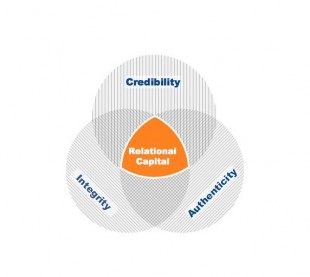

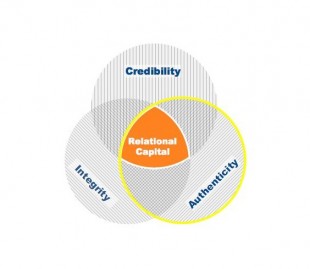 I believe that authenticity is sometimes the hardest of the three essential qualities of relational capital to demonstrate, and it requires the highest degree of bravery on our part.
I believe that authenticity is sometimes the hardest of the three essential qualities of relational capital to demonstrate, and it requires the highest degree of bravery on our part.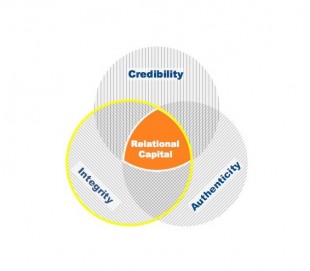 Integrity is doing the right thing when no one is watching, like leaving our business card on the windshield of a car we just bumped in the parking lot.
Integrity is doing the right thing when no one is watching, like leaving our business card on the windshield of a car we just bumped in the parking lot.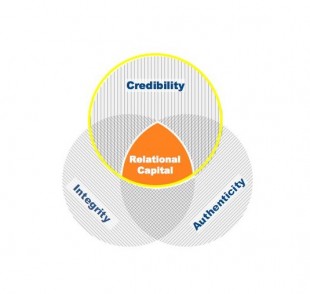 Credibility is the quality that makes others believe in you, your words, and your actions. Credibility is the gatekeeper quality.
Credibility is the quality that makes others believe in you, your words, and your actions. Credibility is the gatekeeper quality.  A unique way for you to follow up with someone after an initial contact is to send him or her a handwritten note…even if the meeting doesn’t go well, and even if you don’t have a follow up meeting.
A unique way for you to follow up with someone after an initial contact is to send him or her a handwritten note…even if the meeting doesn’t go well, and even if you don’t have a follow up meeting. the time to think about what they wanted to say, to write the note, to address it, to put it in an envelope and put a stamp on it, to address it and to put it in the mailbox.”
the time to think about what they wanted to say, to write the note, to address it, to put it in an envelope and put a stamp on it, to address it and to put it in the mailbox.” It doesn’t matter what level you are at in your career …
It doesn’t matter what level you are at in your career …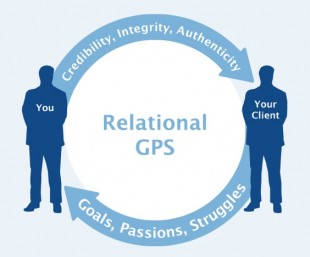 In
In  Action Point
Action Point
 It’s only natural – as we advance up the relational ladder, we find a comfort zone with our colleagues, our business partners, our clients and vendors.
It’s only natural – as we advance up the relational ladder, we find a comfort zone with our colleagues, our business partners, our clients and vendors. Action Point
Action Point